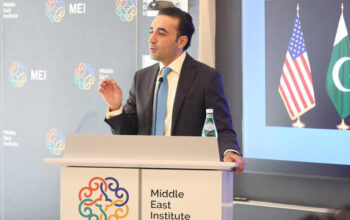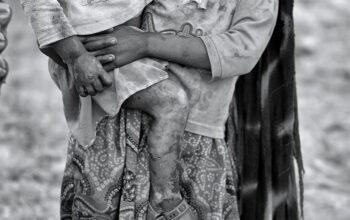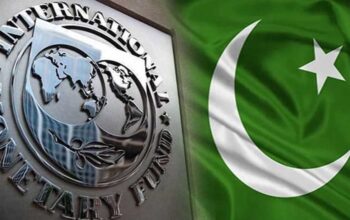Monsoons have been the harbingers of life and growth for our region for millennia and they still are. Why should they bring death and destruction for Karachi?
By The Editors
Over the three days of Eid-ul-Azha this year, intermittent but frequent and heavy spells of rain over parts of Karachi killed more than two dozen residents of Pakistan’s most populous metropolis. This is the beginning of the Monsoon season for the port city.
Every Monsoon, Karachi pays heavily in life and property for the incompetence, dishonesty, or both – of those managing its sprawl. For, urban flooding is nothing but rainwater snarled up amid urban developments.
And so Karachi, Pakistan’s commercial and financial hub, is left at the mercy of a fragile and inadequate drainage system which only seems to deteriorate over time. But all we see in the name of response is a jockeying for political advantage dressed as a charade of outrage.
Political games begin in earnest with Karachi struggling to keep its nose above floodwaters, and the administration fails to deal with the ordeal caused by rain.
Many formulas have been put in place to run Karachi but all efforts have been in vain. The solution to mega problems of Karachi is not in having a young and charismatic city manager, but a proper system. A system that can put all relevant departments to work together.
Karachi does not need any financial package. It needs honest, upright professionals to correct the massive irregularities.
The urban flooding in Karachi revealed long back, that natural waterways of the mega city had been encroached upon by housing societies. An additional burden was created by builders, who opted for vertical housing on land that was initially intended as a single household. Thus a drainage system meant for a family of six to eight persons is now being used by a minimum of twenty households.
The single agency that deals with the drainage system of the city, Karachi Water and Sewerage Board can deal and answer only for the areas it has control over. The rest, run by other civic authorities, turn dormant when Karachi is drowning. They neither have the capacity to deal with the crisis nor feel answerable to anyone.
Karachi is divided into six districts. Not all the districts fall under the provincial or local government. About 70 percent of this city is under control of cantonments and different federal agencies. These areas have their own by laws, tax collection, etc.
In times of crisis like urban flooding, fingers point towards the city managers and provincial government, although large swathes of the city exist outside their control. It is past time to assert that the managers of those other parts of the city also share in the responsibility – and blame – for flooding.
Political parties in Karachi Pakistan Peoples Party (PPP), Muttahida Qaumi Movement-Pakistan (MQM-P), Pakistan Tehreek-e-Insaf (PTI), Jamaat-e-Islami (JI) and Pak Sarzameen Party (PSP) are found blaming each other for the inadequate response to devastation caused by rains.
Each of these parties have ruled Karachi at one level or the other. However, they lack the wherewithal for major reforms – so much so that they have been unable to converge on a local government system acceptable to all.
What Karachi needs is a proper local government that has the power to deal with civic issues, incorporating a central structure that has all other agencies under its umbrella for municipal services.
In fact, this is what had been ordered the Supreme Court of Pakistan in 2007.
A four-member bench headed by then CJ Iftikhar Muhammad Chaudhry, ordered that Karachi Strategic Development Plan 2020, prepared by the City District Government Karachi shall be binding on all stakeholders and civic agencies functioning in Karachi.
This too was not implemented. Later the Local Government Act was also changed. Now the MQM and PPP are working towards yet another local government system. MQM-P wants the new law to be in light of the SC orders according to article 140 A.
Whatever form is worked out, it shall not be an answer to all the problems of Karachi. The armed forces of the Pakistan will now have to play their role. When they own a huge slice of this pie, they need to also fall under the umbrella of this city’s master plan and by laws.
Unless they do so, Karachi will continue to sink every monsoon season.
Copyright © 2021 Independent Pakistan | All rights reserved




